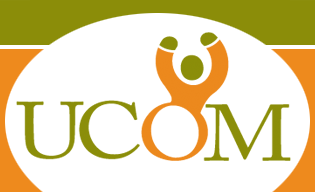Guest Blog by Fred Keller
September 29th, 2015
My friend and UCOM supporter Fred Keller of Cascade Engineering posted this to this Facebook page and granted permission for me to use it as a guest blog.
-Bruce
John Boehner, the Pope, Principles and Demagogues
A few thoughts. A bit long for Facebook but maybe you will indulge me?
Something about the sudden announced departure of Speaker John Boehner and the grace filled visit by the Pope to the halls of congress and the United Nations has given my brain a giant twist about the mixture of religion and politics – something we supposedly abhor in this country.
Speaker Boehner was by some accounts forced out of office by conservative Tea Party members upset with his lack of support of them, accusing him of being a “moderate” in an attempt to be pejorative. Pope Francis pushing for more compassion for the disadvantaged talked to the members of congress to great applause and then silently departed the halls of power to have lunch with the powerless.
I was impressed with how Pope Francis spoke truth to power; yes that is an admirable trait. But I most appreciated his ability to talk in terms of principles: about caring for the less fortunate, about family. I admired him for that. And when I heard the snickers of the Tea Party members as they gloated at the victory of defeating the Speaker and their demands to shut down government in order to get their way, I started to question in my mind the difference between principles and demagoguery.
Going by what I carry around in my head about principles, I am reminded of words like aspiration, positive, future. And for demagogues I think of deriding, villainizing, and the past. But maybe I am wrong, maybe demagogues are useful in government, maybe they are important even. So I looked up the definition of demagogue and was surprised! The first definition was “a political leader who seeks support by appealing to popular desires and prejudices rather than by using rational argument”. And the second one was “(in ancient Greece and Rome) a leader or orator who espoused the cause of the common people”. How ironic that today it is used as a term to describe how one obtains power but its origins describe someone concerned about the common person.
And what about principles? This definition: “a fundamental truth or proposition that serves as the foundation for a system of belief or behavior or for a chain of reasoning”. Ahh, now I know why I admire those who speak to principles: it leads to a chain of reasoning; exactly what our country was founded upon. It allows discourse to flow and ideas to be exchanged and creative solutions to be derived.
I think the Pope has taught me something. Principles are more important than demagogues. But then, I should have known that before!
-Fred Keller









Comments
No one has commented yet, you could be the first!
Leave a Comment